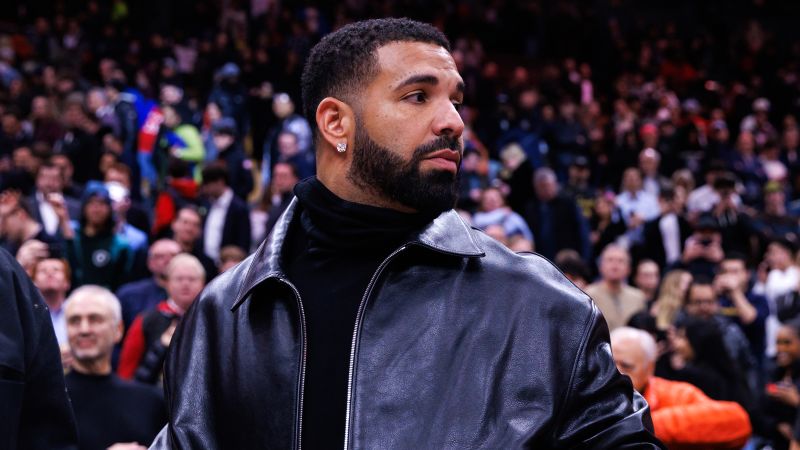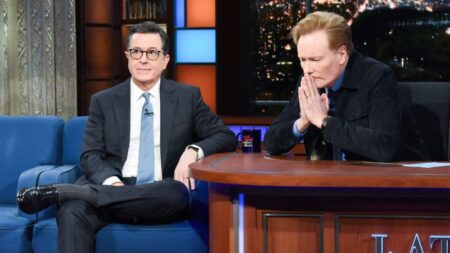In a surprising turn of events in the world of hip-hop, Drake, the Canadian rap sensation, has filed a federal defamation lawsuit against Universal Music Group (UMG), his record label, claiming that he was defamed during Kendrick Lamar’s performance at the Super Bowl halftime show and at the Grammy Awards. Court filings reveal that over 100 million viewers witnessed Lamar’s infamous diss track “Not Like Us,” which is central to the allegations. This controversy stems from a series of sharp exchanges between two of the genre’s titans, Drake and Kendrick Lamar, where personal attacks and uncited claims have taken the forefront.
Initially, Drake lodged his lawsuit in January but has since expanded his claims to encompass the fallout from these high-profile events. His legal team argues that the exposure from the Super Bowl and Grammy performances has not only boosted streaming numbers for “Not Like Us,” but also escalated personal threats against Drake and his family. The dual incidents allegedly introduced significant new audiences to the song, intensifying its impact and drawing even more attention to its controversial lyrics.
Drake currently operates under the umbrella of Republic Records, a subsidiary of UMG, while Lamar is signed to Interscope Records, another division of UMG. Importantly, Drake’s amended complaint does not directly accuse Lamar of any wrongdoing; rather, it’s directed at the entity of UMG, which he claims failed to protect him from the fallout of these events. UMG has responded by asserting that the lawsuit is frivolous and unnecessary, contending that it could impose undue restrictions on creative expression within the music industry.
In a statement issued to CNN, UMG criticized the legal actions taken by the rapper: “Drake, unquestionably one of the world’s most accomplished artists and with whom we’ve enjoyed a 16-year successful relationship, is being misled by his legal representatives into taking one absurd legal step after another.” This remark underscores the complexity of the relationship between the artist and his label amidst the ongoing legal battle.
At the core of the dispute is “Not Like Us,” where Lamar notably asserted the shocking claim that Drake was a “certified pedophile.” This claim, which Drake staunchly denies, has not only fueled the legal battle but also contributed to a public relations nightmare for the Canadian rapper. His legal representatives have noted that during these major performances, Lamar refrained from reciting the most incendiary lyrics, a line that includes the aforementioned allegation, suggesting an awareness of its defamatory potential.
The implications of Lamar’s characterizations during these performances could be significant, especially considering the reach and influence of such prominent cultural platforms as the Super Bowl and the Grammy Awards. For context, the Super Bowl halftime show garnered an average viewership of 133.5 million, marking it as the most-watched in history, while the Grammy Awards attracted about 15.4 million viewers.
In addition to the incredibly high stakes associated with public perception, the lawsuit has been further complicated by claims from UMG that Drake’s lawsuit could inhibit free speech protections that artists traditionally enjoy. The litigation process has already seen some movement, as a judge recently ruled that Drake is entitled to pursue documentation related to both events and will have access to details regarding Lamar’s contract and UMG’s business practices.
With discovery set to commence, Drake’s lawyer, Michael Gottlieb, expressed confidence that the evidence will support Drake’s accusations of misconduct against UMG. However, UMG responded by highlighting that Drake himself would also be under scrutiny, cautioning, “be careful what you wish for.”
As the legal proceedings continue, the possibility of reaching an out-of-court settlement looms large, which is common in defamation cases. Yet if a resolution is not achieved, both parties are preparing for a potential trial that could occur as early as summer 2026. The unfolding of this case not only affects the involved parties but also speaks to the broader implications of celebrity culture, free speech, and accountability within the music industry.











